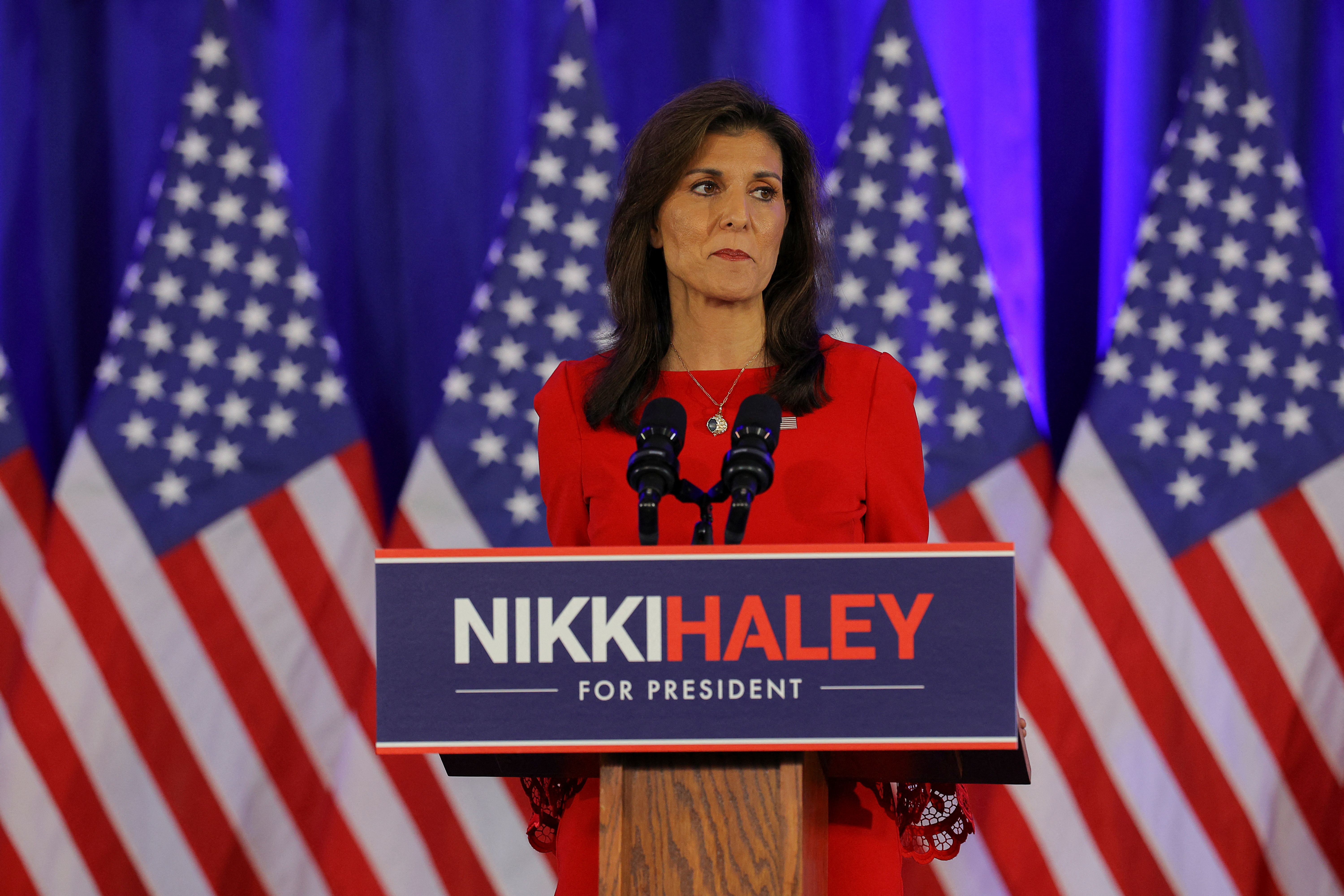Nikki Haley, the former South Carolina governor and U.S. ambassador to the United Nations under President Trump, announced the suspension of her presidential campaign in the wake of a decisive defeat by Trump in 14 out of 15 Republican nominating contests on Super Tuesday. Speaking in Charleston, Haley conceded that Trump was likely to secure the Republican nomination for the presidential race but refrained from endorsing him, instead urging Trump to earn the support of the party and beyond.

Challenges in the Republican Race
Despite her efforts, Haley’s campaign failed to gain significant traction against Trump, who maintained a firm grip on the Republican base. While she garnered support from certain segments of the party, particularly among moderate Republicans and independents, Trump’s dominance ultimately proved insurmountable. Trump’s unyielding presence in the GOP underscores the enduring influence he wields within the party, despite facing multiple criminal indictments.
Implications for the General Election
The impending rematch between Trump and Democratic President Joe Biden in the November election is poised to be deeply divisive, reflecting the polarization that has gripped the nation. With both candidates facing low approval ratings, the race underscores the challenges of political polarization in the United States. As the first repeat presidential contest since 1956, the election promises to be highly contentious, with key battleground states expected to play a decisive role in the outcome.

Key Issues and Outlook
The campaign is likely to revolve around critical issues such as the economy, immigration, and democratic principles. While Trump emphasizes a tough stance on immigration and economic policies, Biden faces scrutiny over his handling of economic issues and border security. Additionally, ongoing legal challenges and controversies surrounding Trump, including criminal charges and concerns about democracy, further complicate the electoral landscape. As the race intensifies, voters will weigh these factors in determining the future direction of the country.